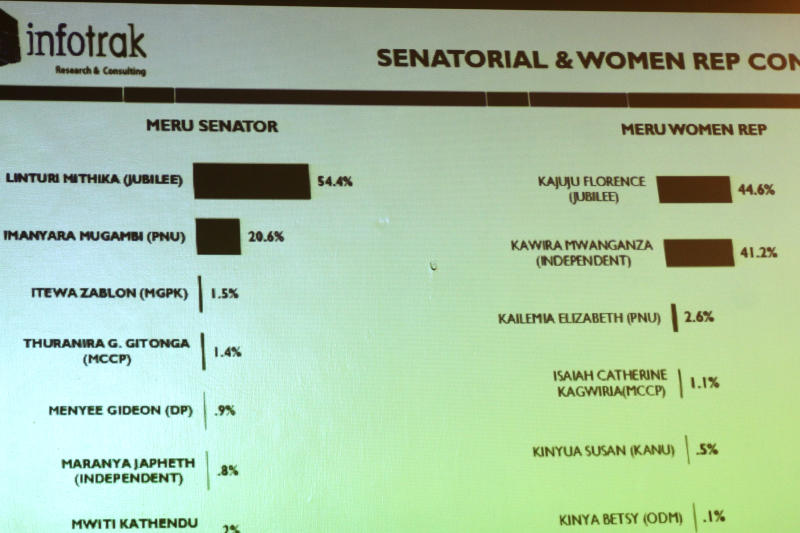×
The Standard e-Paper
Join Thousands Daily

A graphic representation of the senatorial race in Meru County as released by Infotrack in July 2017 at their offices in Nairobi.[Elvis Ogina, Standard]
One of the most recent striking political developments in this country has been the rise of opinion surveys.







